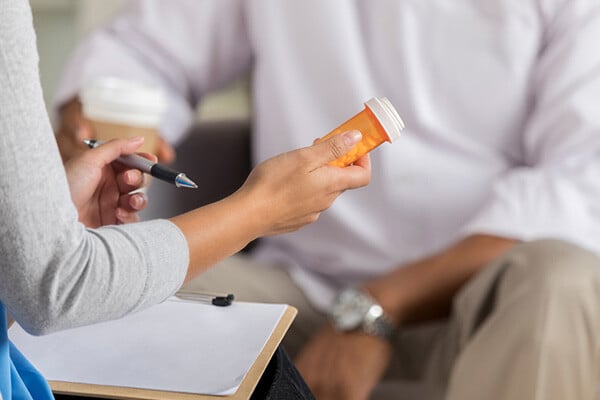Opioids aren’t the only therapy for chronic pain. Non-opioid treatments can provide relief, too. Learn about your options.

Let's Be Clear:Health Care Providers
- Professionals
- Health Care
Providers play a critical role in a patient’s recovery. Whether you are referring patients to treatment, connecting families to support services, expanding prescription capabilities or exploring training opportunities for staff, it’s important that you are aware of the options and tools available.
Medications for Opioid Use Disorder (MOUD)
Medical treatment is a vital component of recovery. Learn more about Medications for Opioid Use Disorder (MOUD) as an effective treatment option.

Effectiveness of MOUD in Treatment
Treatment works, and recovery is possible with the help of therapies like MOUD. MOUD doesn’t mean replacing one drug for another. It’s prescribed, FDA-approved medication to reduce cravings and help people who are experiencing withdrawals. In fact, research has shown it’s one the most effective treatment options. Read the evidence on MOUD.
Pain Management Resources
Find resources, guidelines for prescribing opioids and exploring alternative pain management options.
Emergency Department Provider Toolkit
An interactive guide for emergency department providers to screen and identify patient risk for substance misuse.
Treatment Checklist
Things to consider when prescribing opioids for chronic, non-cancer pain.
CDC Clinical Practice Guidelines
Guidelines from the Centers for Disease Control for acute, subacute and chronic pain.
Prescription Misuse Toolkit
Find patient pain assessments, educational resources and more from the South Dakota State Medical Association.
CDC Journal Articles
Read peer-reviewed articles and published research around opioids, pain management and overdose.
Prescribing Naloxone
Any participating South Dakota pharmacy can distribute Naloxone free to individuals placed at risk or their families. Learn more about prescribing guidelines and participating pharmacies in South Dakota.
Prevention Technology Transfer Center Network (PTTC)
The PTTC offered education, resources and training to help with substance misuse prevention efforts.
On the Spot Real Time Advice
Offered through the ATTC, OtS is an open, one-hour “hotline” forum guided by participants’ questions to get free input on a variety of behavioral health topics.
Addiction Technology Transfer Center Network (ATTC)
The ATTC offers free resources specifically designed for peer support workers, counselors, psychologists and social workers.
CDC Trainings
Modules and webinars on assessing and diagnosing opioid use disorder, MOUD and more for providers.
SAMHSA Practitioner Training
Tools, training and assistance for providers in the mental health and substance use disorder industries.
Combatting Stigma in Your Practice
We all carry bias and stigmas that we may not realize. As a health care provider, you can help stop stigmas by using person-first language and recognizing discriminatory practices that may be happening in clinical settings. Learn more about language best practices to reduce stigma.

Peer Support
Read more about peer support programs in the ED to connect people living with opioid use disorder to resources, support and treatment services.
South Dakota Substance Use Data
Find key data and trends on opioid use, overdose deaths and statewide intervention metrics.
Safe Medication Disposal
Share ways for patients to safely dispose of medication and find take back locations.
Medication Lock Boxes
Order a free medication lock box and learn safe ways to use and store medicine.
Order Free Materials
Order free brochures, posters and other print materials from Let’s Be Clear to post and share with patients.


